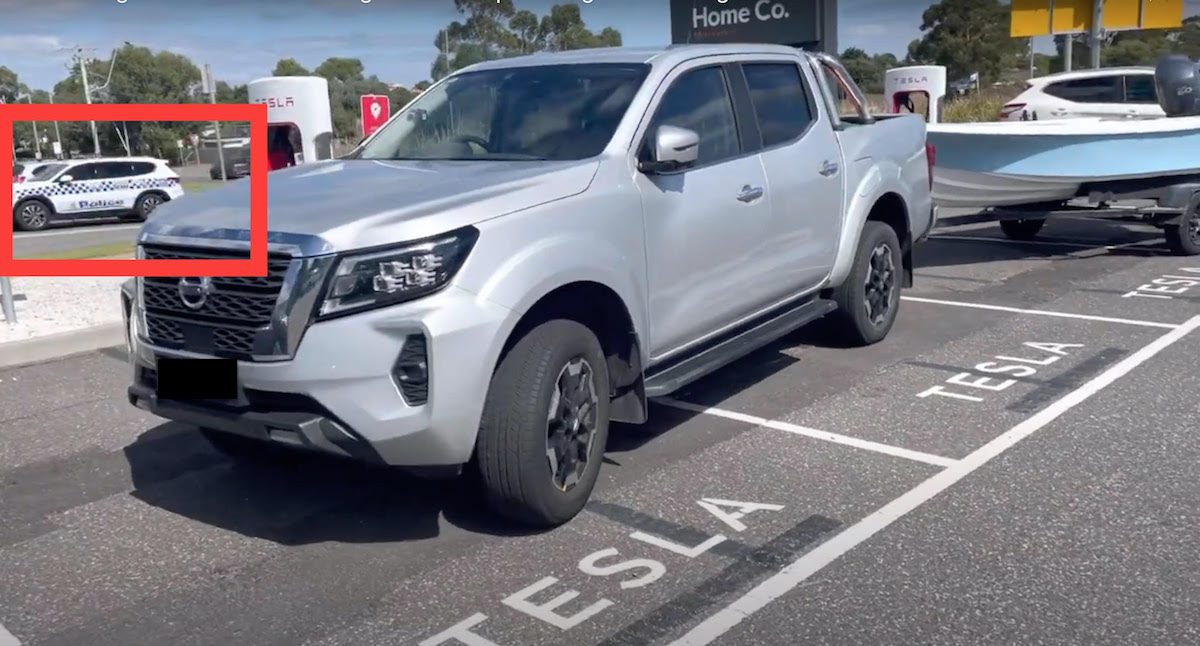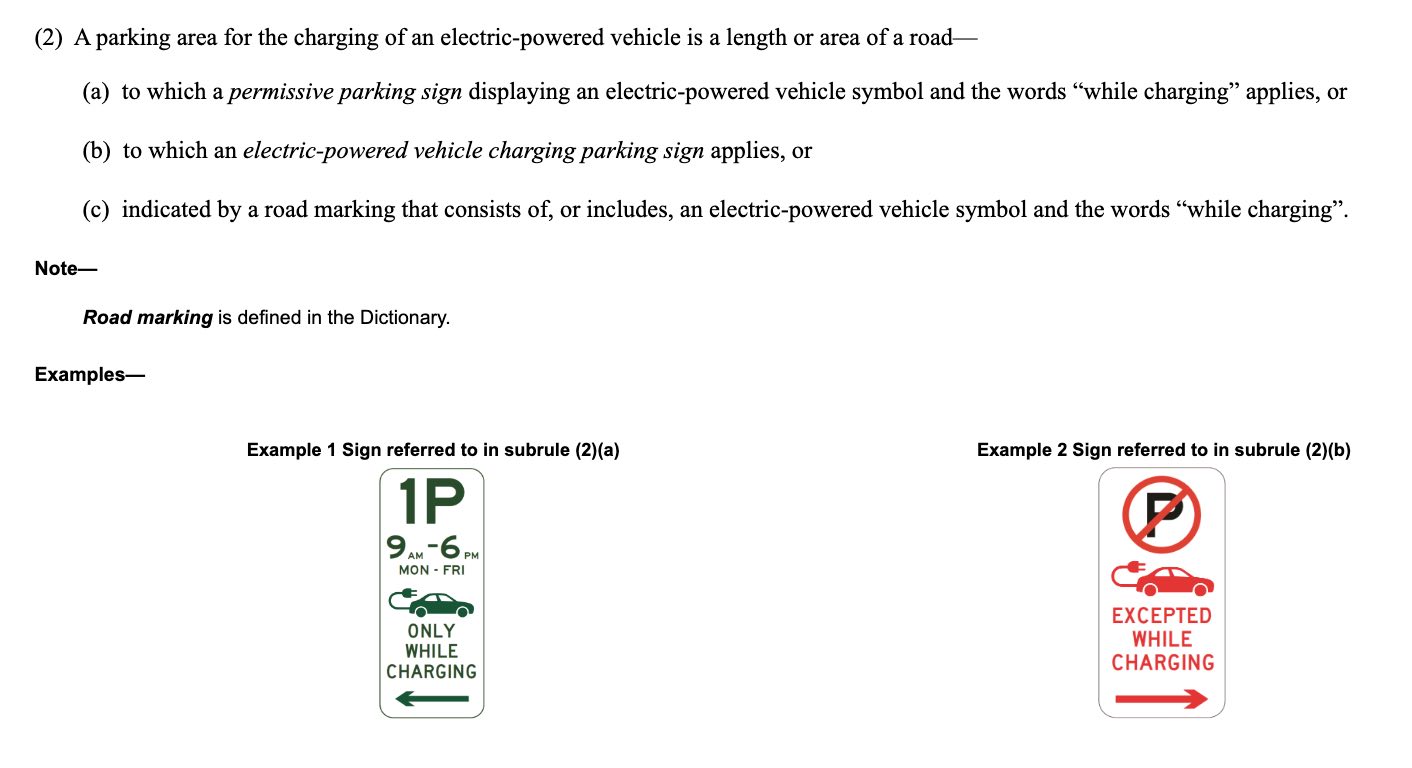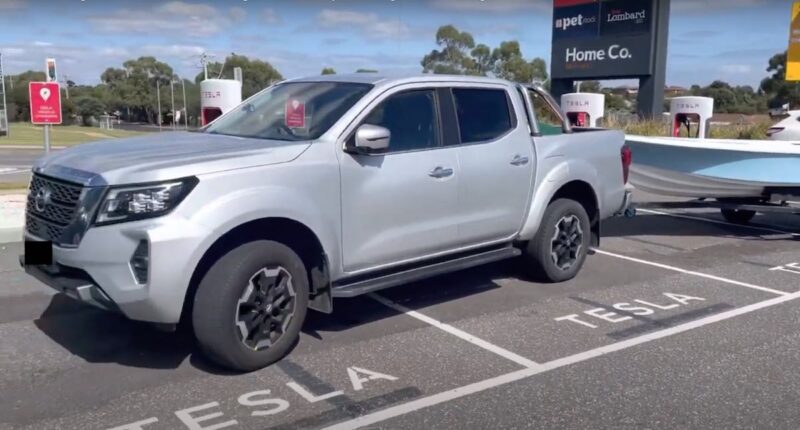A diesel Nissan Navara towing a boat has been filmed blocking at least four Tesla Supercharger bays in Mornington Victoria for more than three hours – in full view, at least for a time, of a police car.
The video was posted on the Tesla Owner’s Club of Australia Facebook page by Jonathan Moss, who says that the ute blocked up to 6 charging bays for over 3 hours and was still parked there when Jonathan left.
Some of the comments on the post reflect the stress that ICEing causes EV drivers, especially when it’s done deliberately.
“I never encourage destructive behavior….however this would test my resolve….” said one comment.
A closer look at the video actually shows a police car in the background just meters from the charging bays.
It’s worth noting that the practice of “ICE-ing” – where internal combustion engine (ICE) cars deliberately block access to EV charging bays, is now an offence met with fines of up to $3,200 in some jurisdictions.

Heavy fines for “ICEing” EV charging stations across Australia
The fines have been introduced because deliberate blocking of EV charging stations isn’t just a minor inconvenience, if there are no other charging stations in area it can mean that EV owners become stranded for hours.
With over 80,000 EVs now on Australian roads, EV charging stations are essentially critical infrastructure and lawmakers and law enforcement must ensure that charging bays remain available for EVs at all times.
Blocking EV charging stations in Victoria now carries a fine of $369 (two penalty points) so the Nissan Navara driver was very lucky the infringement wasn’t noticed by the police, who the video shows were just metres away.
Fines for ICEing in other states are even higher, the maximum fine in the ACT, Queensland and NSW 20 penalty points, which in the ACT equates to $3200
NSW has also recently introduced new signage for charging stations which indicates that the vehicle must actually be charging while parked in the charging bay.


Daniel Bleakley is a clean technology researcher and advocate with a background in engineering and business. He has a strong interest in electric vehicles, renewable energy, manufacturing and public policy.

